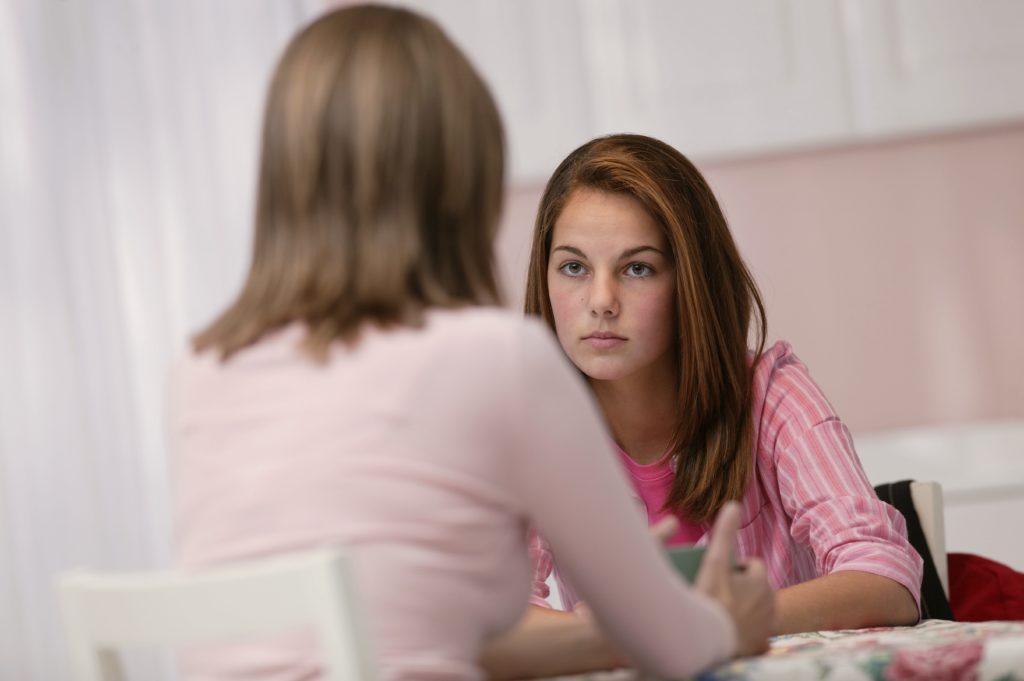 Teen depression is more than just typical angst and moodiness. Depression is a severe mental disorder that affects mood and causes a chronic state of sadness, despair, or hopelessness. Without professional treatment or therapy, it can severely negatively impact a person’s life.
Teen depression is more than just typical angst and moodiness. Depression is a severe mental disorder that affects mood and causes a chronic state of sadness, despair, or hopelessness. Without professional treatment or therapy, it can severely negatively impact a person’s life.
If you recognize signs of depression in your teen and want to know how you can help, or if your parenting style may contribute to their mental health issues, reach out to The Right Step at 17135283709 today. Our depression treatment center can teach your teen the tools to manage their depression symptoms and regain control of their life.
Symptoms of Adolescent Depression
Some symptoms of depression in teens include:
- Chronic sadness, despair, or hopelessness
- Guilt and shame
- Withdrawing socially, isolating from family and friends
- Excessive crying
- Extreme mood swings
- Too much or too little sleep
- Loss of interest in things they once enjoyed
- Problems concentrating
- Substance abuse
- New or worsening problems at home, school, or work
- Weight loss or gain due to changes in appetite
- Poor hygiene and self-care
- Signs of self-harm
- Suicidal thoughts, ideation, or actions
Beyond typical teen moodiness or angst, depression has symptoms that can sometimes be severe enough to impact a person’s life negatively.
Are Certain Parenting Styles a Risk for Teen Depression?
The U.S. Centers for Disease Control and Prevention estimates that somewhere between 5% to 10% of adolescents in this country struggle with depression, and around 25% experience anxiety as a mental health concern. Some causes behind these conditions are not easily remedied, but a recent review of studies shows that at least one risk factor could be reduced.
The review of previously conducted studies, produced by the Population Mental Health Group at the Melbourne School of Population and Global Health, examined 181 prior studies on family relationships and adolescent mental health. The review found that parents who often fight or act as helicopters, hovering and over-involved with their teens’ lives, are most likely to have adolescents who battle either depression or anxiety.
Parenting is not the only risk factor a teen has for these conditions. Things like family history of mental illness, socioeconomic status, and ethnicity all play a role in determining whether or not a young person will be prone to developing anxiety or depression. Environmental factors beyond a parent’s control, such as bullying at school, also contribute to the risk. Nevertheless, parents loom large on the emotional landscape of their teens.
How Parenting Style Can Cause Teenage Depression
When parents are harsh, cold, sarcastic, and critical or use shame and rejection to control their children, depression or anxiety in the child becomes more likely. The risk is also higher for adolescents living in homes where mom and dad are often at odds. By contrast, families where the adolescents were active participants in making family decisions and where the parents stayed alert to their whereabouts seemed to have the lowest rates of teen depression.
Allowing young people to make decisions, even unwise ones, is integral to building self-esteem and confidence. Teens need to learn from making mistakes. Over-involved parents send a message that they don’t trust the young person’s ability to do things independently. Parents who are quick to anger also show that they can’t be relied on for help. A home with boundaries, freedom within limits, and good communication is much healthier for adolescents.
It is essential to listen to your teen when they tell you your words or actions hurt or upset them, even when you feel it’s unjustified. If your teen is acting out or doing things wildly out of character, it may be because they don’t feel like they can come to you to discuss how they think.
Some other ways parenting style can cause teenage depression include the following:
- Overly strict rules and expectations that don’t take into account how the adolescent is changing
- Not allowing your teen to express their own opinions or set reasonable boundaries
- Ignoring how a teen might feel about how they are being treated at home or how it could impact them
- Not listening when your teen does try to talk about how they are feeling
Paying attention to how your teen is growing and developing, adding flexibility to your parenting style, and keeping the lines of communication open can help protect teens from mental health issues such as depression.
Is it possible you have created an unhealthy environment for your teen without realizing it? Family therapy can help restore balance and rebuild relationships that may have been damaged by poor communication or harmful actions in the past. Depression treatment for your teen could help them begin to heal and manage the symptoms of their depression.
Learn More About Teen Depression at The Right Step in Texas
Getting help for your teen as soon as possible is vital if you suspect they are suffering from depression, especially if they are self-harming or suicidal. It’s not for attention, and it’s not a phase—they’re not going to grow out of it without professional help. Call 17135283709 to get your teen started on improving mental health.






